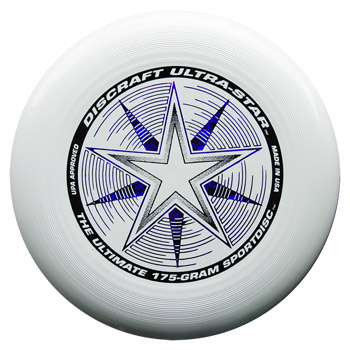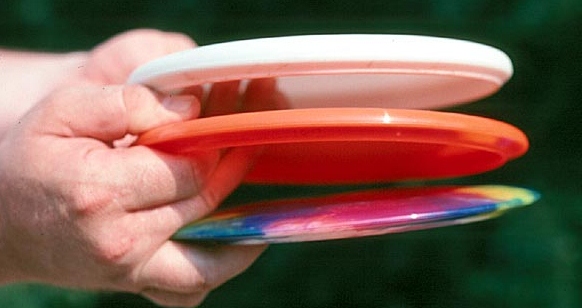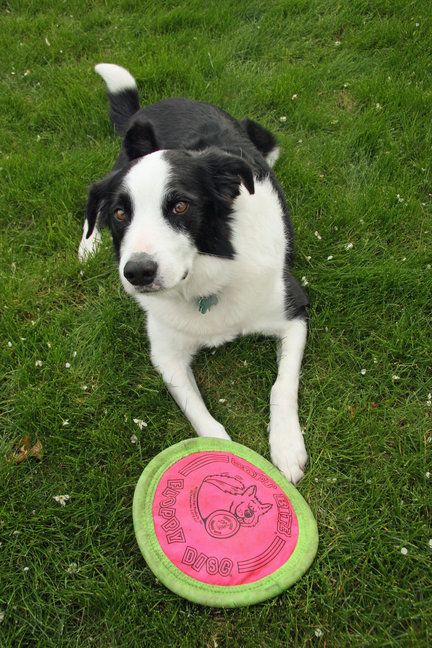The Frisbee is used today for a multitude of different activities, ranging from ultimate to disc golf to fetch with a dog. Different
types of discs are used for these various activities. An ultimate disc is a light disc that is large in diameter and has a large rim. This
kind of disc can be thrown very accurately, but not as fast as a disc golf disc. (ultimate disc shown below)

http://www.discraft.com/downloads/discs/us_white_md.jpg
Within disc golf there are drivers, mid-range, and putting discs, all specifically designed for their task. A driver is made of a hard
plastic that flies with more stability the harder it is thrown. These discs are heavy with most of their weight distributed toward the
rim for increased moment of inertia. They can go very far and very fast. The mid-range is, as it sounds, for throws that aren't very far.
This disc is easier to control and flies straighter than a driver, but flies slower. The putter is shaped more like an ultimate disc, but it
is much smaller. This disc is easy to control. It flies straight and level at a slow speed for the putting shots. It can be made of a softer
plastic than that of the driver. (Disc golf discs shown below- going bottom to top- driver, mid-range, putter)

http://selfhatinghipster.files.wordpress.com/2011/10/discs.jpg
A dog specific disc is usually made of soft plastic or even cloth to prevent injury to the dog. (cloth disc - right) These discs
also don't fly as fast so the dogs can catch them.

ttp://media.oregonlive.com/runoregon/photo/bear-running-dog-frisbeejpg-8c0bfaf134372a8c_large.jpg